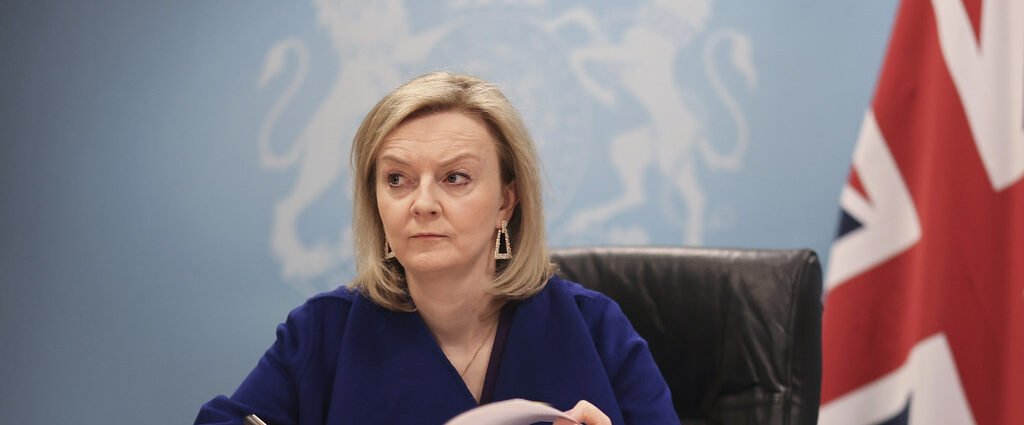Alanya Smith
Liz Truss has been voted as Prime Minister of the United Kingdom and leader of the Conservative Party. Truss gained 81,326 votes, whilst competitor Rishi Sunak gained 60,399 votes. Truss won by 20,927 votes, at 57.4 per cent. In total, there was an 82.6 per cent turnout of voters.
Voting Announcement
Since Boris Johnson’s resignation in July 2022, Conservative Party members have campaigned, debated, and fought for their choice of Johnson’s successor.
Each candidate was questioned for 14 hours in total, vetted with 600 questions from their colleagues in the Conservative Party. Truss and Sunak have also campaigned for their position through interviews with various media sources.
In her winning speech, Truss stated:
“I will deliver a bold plan to cut taxes and grow our economy. It’s an honour to be elected as leader of the Conservative and Unionist Party.”
"It's an honour to be elected as leader of the Conservative and Unionist Party"
Liz Truss thanks colleagues for "one of the longest job interviews in history" as she is announced winner of the Tory leadership race and the next UK prime minister https://t.co/MHVgV4Po06 pic.twitter.com/IF5uICD9tU
— BBC Breaking News (@BBCBreaking) September 5, 2022
Political analyst Beth Rigby commented:
“How she handles these first weeks will be critical and could buy her time. But given the headwinds she’s facing, it still might not be enough.”
Future Premiership
A predominant criticism of Truss’ campaign has been her backtracking in past political positions, as well as her vague future plans as Prime Minister.
Less than 24 hours after her signing in as Prime Minister by Her Majesty the Queen on 7th September, Truss will face her parliamentary co-workers during Prime Minister’s question time. It is predicted to be a pivotal opportunity for Truss to outline her key policies and aims, whilst also being challenged on the quickly encroaching energy crisis hitting UK households this October.
With energy bills rising by 80 per cent through the rising price cap implemented by OFGEM, believed to profit leading UK energy suppliers by £170 billion in the next two years, Truss has yet to disclose her plan to battle the present economic crisis firmly. Since the parliamentary recess began for the summer period, on 21 July 2022, inflation figures have been predicted to rise to 22 per cent by January 2023. This will near the highest post-war inflation rate since 1975, presenting a pivotal obstacle to Truss’ premiership as households will pay an average of an additional £3,549 per anum in energy bills.
Following Truss’ independent views on present discourse in the House of Commons, particularly her comments made on transgender rights, support has been divided. Her comments discouraging “irreversible” gender-reassignment surgeries for individuals under the age of 18 in the UK have been criticised as reinforcing an ‘anti-trans’ rhetoric, with the inability to self-identify at “contradiction with international human rights”.
Liz Truss has been announced as the UK's next Prime Minister – but what does this mean for LGBTQ+ rights?
It's not the best news, sadly. Watch our exclusive video to find out more: pic.twitter.com/T7Tq90bnip
— PinkNews (@PinkNews) September 5, 2022
Climate of the Conservative Party
Although Truss remains a self-identified keen supporter of Boris Johnson, specifically during the partisan shuffling of Johnson’s cabinet, many Conservative Party members were divided between continuing their support for Johnson and resigning alongside Rishi Sunak.
Whilst Truss’ ideology and ‘identify politics‘ approach as Prime Minister merited a varied response from the British public, her actions going forward to reunify divisions within the party and reconnect with Johnson’s critics will challenge her as Conservative leader.
Further divisions, sparking comments on internal party support of Truss, have generated from Priti Patel’s timely resignation as home secretary, following the announcement of Truss’ leadership. The composition of Truss’ cabinet will be further solidified throughout the week.
Boris Johnson will give his final comments as Prime Minister on Tuesday 6 September at 9:00 am, before travelling to Balmoral alongside Truss to meet with the Queen.
Johnson is rumoured to have expressed interest in re-election as Prime Minister and Conservative Party leader in the future, heightened by his “hasta la vista” remarks.
Public Opinion
The Conservative Party leadership election was initially criticised for the process of member voting, a system exclusive to those registered as Conservative Party members. The 2024 general election was a topic of great consideration in the leadership decision-making process, with many party members seeking to elect a leader who would provide a strong opponent to competing political parties.
A recent YouGov poll canvassing the attitudes of the British public revealed that, although 45 per cent agree that it was appropriate for Boris Johnson to be removed from his position as party leader and Prime Minister, only 12 per cent believe that Liz Truss will be a good or great successor. In the same survey, 52 per cent of people stated that they believed she would be poor or terrible.
47 per cent of those surveyed believe that the rising cost of living will be the greatest challenge for the government at this time, with 14 per cent voting for the COVID-19 pandemic and 34 per cent voting that they are equally challenging.
The success of soon-to-be Prime Minister Liz Truss’ policies in tackling the economic and health crisis facing Britain will become apparent in the upcoming winter period. This process will begin on Wednesday.
Featured image courtesy of UK Government via Flickr. Image license found here. No edits were made to this image.


2 Comments